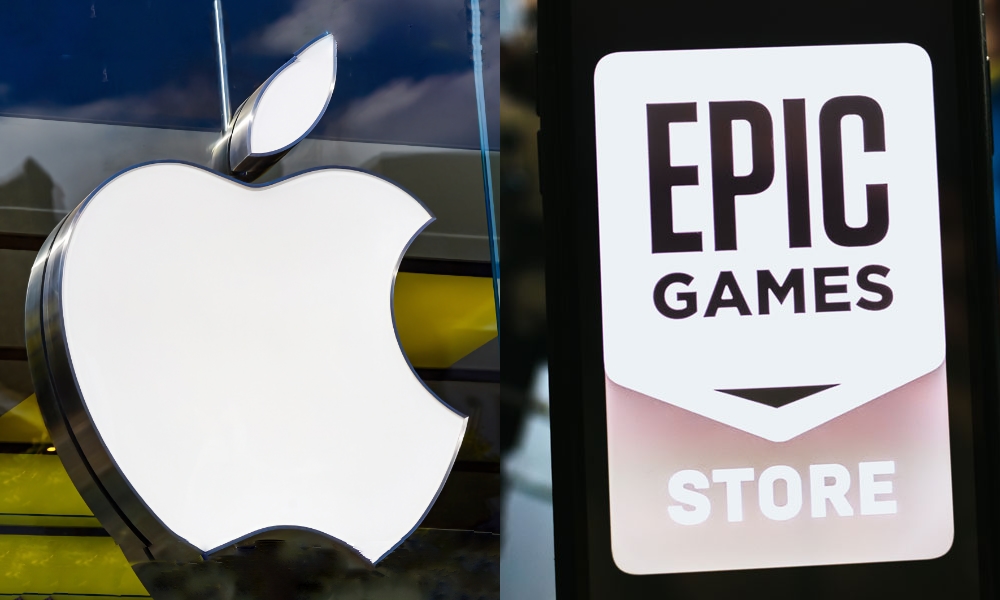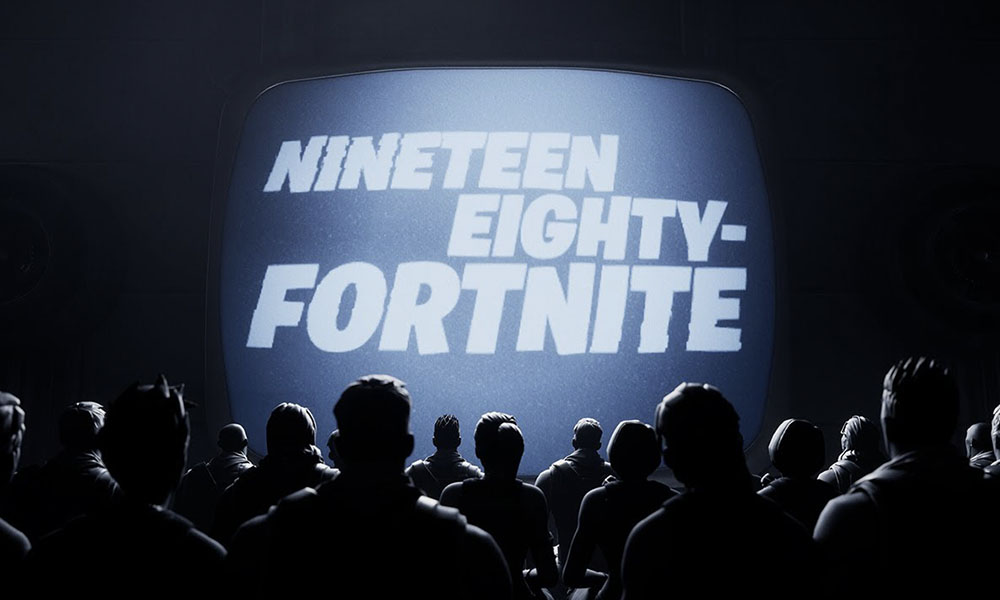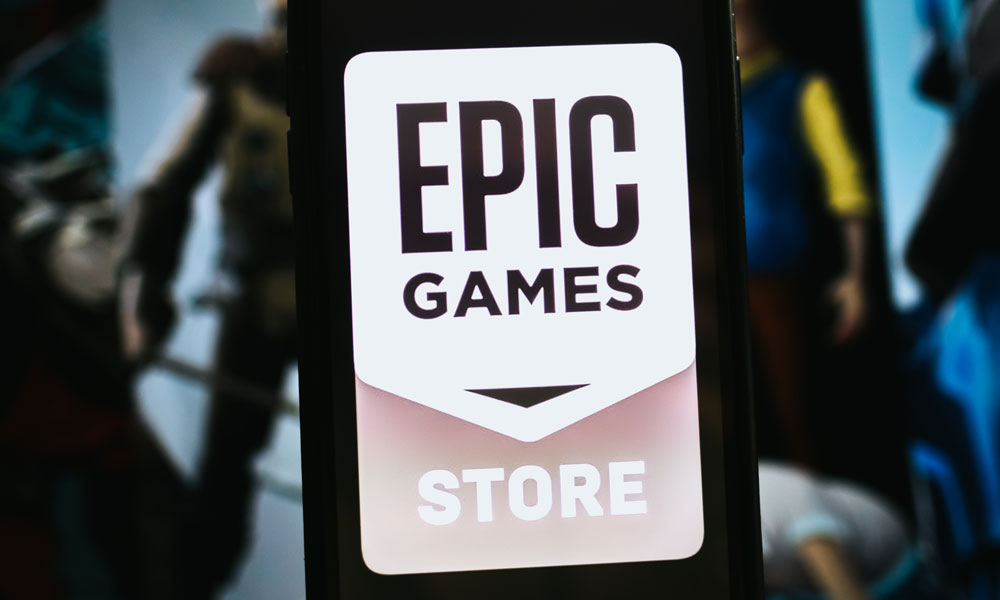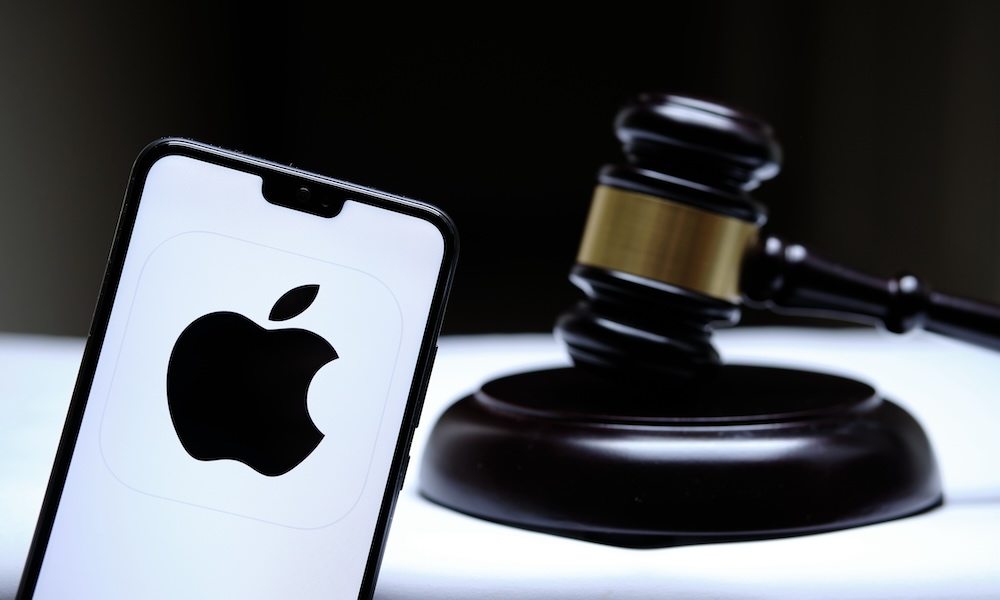Apple Tosses a New Curveball into its Battle with Epic Games
 Credit: Vytautas Kielaitis / nikkimeel / Shutterstock
Credit: Vytautas Kielaitis / nikkimeel / Shutterstock
Toggle Dark Mode
Although the landmark court case between Epic Games and Apple seemingly came to a close earlier this year when the Supreme Court declined to hear appeals from either company, Apple seems to have found a new legal angle to try to get the injunction against it thrown out.
To recap, the drama began when Epic Games declared war on Apple in 2020 by purposefully violating its developer agreement as an excuse to launch a prepared lawsuit that it hoped would force Apple to open up the iPhone platform to third-party app marketplaces — including its own Epic Games Store. Epic snuck its own purchasing system into Fortnite to push Apple into removing the app from the App Store, which it used as the basis for its lawsuit accusing Apple of anti-competitive behavior and violating antitrust laws.
After trying and failing to have the courts force Apple’s hand through a preliminary injunction, the case continued through the courts for another year until Judge Yvonne Gonzalez-Rogers handed down a district court ruling that mostly favored Apple. Specifically, Judge Rogers denied nine out of Epic’s ten claims. In the ruling, Judge Rogers stated that Epic had failed to prove Apple was a monopolist but agreed with Epic Games that Apple had engaged in “anti-competitive conduct under California’s competition laws” with its “anti-steering” rules.
That last point concerned the part of Apple’s Developer Program License Agreement (DPLA) that prohibits apps from including “buttons, external links, or other calls to action that direct customers to [other] purchasing mechanisms.” In short, these are the rules that Apple uses to prevent services like Netflix and Spotify from even telling customers that they can sign up through their web browser. While Apple has relaxed this rule for some apps, games like Fortnite aren’t included on that list.
To enforce the ruling, Judge Rogers also issued a permanent injunction that effectively blocked Apple’s enforcement of the anti-steering rule; Apple would no longer be able to prevent apps from including “buttons, external links, or other calls to action that direct customers to purchasing mechanisms, in addition to In-App Purchasing.”
Naturally, Apple appealed this, while Epic Games appealed the other nine counts it had lost in the original ruling. Both sides failed to convince appellate courts of their respective positions. When the Supreme Court decided it wasn’t worth its time to get into this particular schoolyard sandbox, the decisions became set in stone. Or, so it seemed.
It turns out that a couple of other cases have changed the landscape since Judge Rogers handed down the original ruling in late 2021, and Apple’s lawyers have latched onto two of these, citing them as precedents that should nullify the original injunction.
As reported by Reuters, Apple has filed a court request that Judge Rogers either throw out the original injunction or narrow its scope to apply solely to Epic Games.
The key to Apple’s case is the ruling concerning California’s Unfair Competition Law (UCL). Since Epic’s case was filed in Federal Court, it fell on Judge Rogers to interpret California state law on behalf of California’s state courts, as no case had been brought at the state level to challenge Apple’s anti-steering rules.
However, that’s no longer the case. After the 2021 ruling, a class-action lawsuit, Beverage vs. Apple, was filed in California to attempt to make a similar case that Apple’s anti-steering provisions violated the UCL in addition to the Cartwright Act. Unfortunately, the California courts made an entirely different decision, ruling that Apple’s anti-steering rules were protected under two legal doctrines, Colgate and Chavez, since they’re not coercive. Instead, as Apple notes in its filing, the Beverage trial court explained that Apple’s anti-steering Guidelines are “open, unilateral conduct by Apple, essentially a ‘take it or leave it’ deal—not threats, boycotts or other such ‘affirmative action’ to coerce developers into a conspiracy with Apple against others.”
The plaintiffs appealed that decision to the California Sixth District Court of Appeal, which upheld the lower court ruling. They then appealed to the California Supreme Court, arguing that the case should have followed Judge Rogers’ earlier ruling, and as Apple notes in its filing, emphasizing that the state appellate court “decline[d] to follow recent federal decisions involving exactly the same facts as the current case.” The California Supreme Court denied the petition for review.
The California Supreme Court’s refusal officially settled the case in Apple’s favor on August 26, 2024. With that, Apple now argues that since a California court has provided an interpretation of California law, the Federal court must follow that interpretation, as previous rulings have established that “in a case governed by state law, a federal court is not free to disregard an intervening decision of a state appellate court, even if it requires a reexamination of the law of the case.”
The Beverage decisions now settle the same question of California law underlying the Injunction, and they reach the opposite conclusion: Under Beverage, the conclusive determination of the California courts is that Apple’s anti-steering rules are not “unfair” under the UCL. This is not simply an intervening development or clarification on a general point of law — it is state-law precedent evaluating the same conduct by the same defendant under the same state law. Beverage is now the authoritative state-law pronouncement on the exact UCL issue in this case.Apple Inc.’s Motion for Relief from the judgment under Federal Rule 60(B)
While it seems that precedent should carry enough weight by itself, Apple also cites another case, Murthy v. Missouri, which has much less to do with the Epic Games case, at least on the surface. Murthy accused the Biden Administration of unlawfully pressuring social media platforms to suppress misinformation. While the lower courts ruled in the plaintiff’s favor, the US Supreme Court vacated the decision for lack of evidence proving tangible future harm.
Apple argues that Epic Games has similarly failed to demonstrate how it or other third-party developers will suffer an injury from Apple’s anti-steering provisions that is “concrete, particularized, and actual or imminent; fairly traceable to the challenged action; and redressable by a favorable ruling.”
Under Murthy, it is a “tall order” for Epic to obtain standing to enjoin Apple’s conduct towards third-party developers, who are “independent decisionmakers.”Apple Inc.’s Motion for Relief from the judgment under Federal Rule 60(B)
Using the Supreme Court’s language from the Murthy ruling, Apple adds that proving such harm is a “tall order” even for Epic Games, and it’s even more difficult to prove how the anti-steering provisions would harm other third-party developers.
Apple ties Beverage and Murthy together to argue that the UCL ruling is incorrect as a matter of state law and that Epic lacks standing to seek nationwide injunctive relief that would apply to third-party developers. While Apple argues that the injunction should be “vacated outright under Beverage,” at the very least, “it should be narrowed to Epic and its affiliates under Murthy.”










